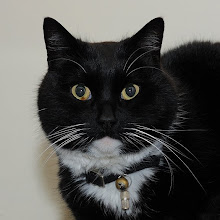Tracing colonels to regiments can be a real challenge, and establishing who is the correct colonel can be even more daunting. Especially when references and biographies are not very clear.
For example consider the various regiments of horse commanded by Charles, Lord Gerard, also known the Earl of Macclesfield with Viscount Brandon being a subsidiary title. Actually, there were two Lord Gerards who held colonelcy of a regiment horse. One being the father, the 1st Earl, and the other being the son, the 2nd Earl.
In 1678 we find Lord Gerard's Regiment of Horse raised in anticipation of the coming war with France. This is the father, and the son was lieutenant - colonel in the regiment.
In 1679 we have another regiment by this name, but this one was commanded by the son. This was the same regiment as the Duke of Monmouth's Regiment of Horse formed in 1678, and disbanded after the Treaty of Nijmegen. The 1679 re-formation was instigated by the Covenanter Rebellion.
The regiment could trace its history back to a regiment of horse in French service as part of the British Brigade in French Service between 1672 and 1678.
Furthermore, in 1688 we find another regiment of horse under the name of Lord Gerard. Dalton (English Army Lists, v.2 p.178) claims, by means of a footnote, that it is the father who commanded this regiment. However, this is strange as Lord Gerard, the 1st Earl, was outlawed by James II in 1685 because he was to involved in the plots by the Duke of Monmouth. Consequently he fled to the continent, and returned in 1688 with William III.
Would this be one of a anomalies of the British Army (outlawed but still able to get a colonelcy), or did Dalton make an error?
Here the Oxford Dictionary of National Biography proved to give a hint that solved the problem. We read for the 2nd Earl of Macclesfield:
"He was sentenced to death on 28 November, but was reprieved, released
(January 1687), and pardoned (31 August 1687). He then vigorously
supported James II's policies, especially over the dispensing power,
was granted his father's forfeited estates as a result, and in 1688
even took the field for James, having been restored in October to the
position of colonel of Lord Gerard's horse that he had briefly held in
1679."
It seems that it was the son who was colonel of the 1688 regiment of horse, and not the father.
The son would in 1694 succeed his father to the earldom as the 2nd Earl. In 1694 the 2nd Earl would command a new regiment of horse, until his death in 1701. The regiment would survive until the close of the War of Spanish Succession.
Subscribe to:
Post Comments (Atom)




No comments:
Post a Comment